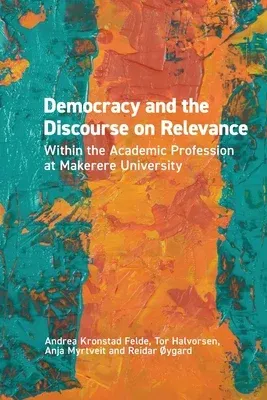Democracy and the Discourse on Relevance Within the Academic Profession
at Makerere University is set against the backdrop of the spread of
neoliberal ideas and reforms since the 1980s. While accepting that these
ideas are rooted in a longer history, the authors reveal how
neoliberalism has transformed the university sector and the academic
profession. In particular, they focus on how understandings of what
knowledge is relevant, and how this is decided, have changed.
Taken as a whole, reforms have sought to reorient universities and
academics towards economic development in various ways. Shifts in how
institutions and academics achieve recognition and status, combined with
the flow of public funds away from the universities and the increasing
privatisation of educational services, are steadily downgrading the
value of public higher education. As research universities adopt user-
and market-oriented operating models, and prioritise the demands of the
corporate sector in their research agendas, the sale of intellectual
property is increasingly becoming a primary criterion for determining
the relevance of academic knowledge. All these changes have largely
succeeded in transforming the discourse around the role of the academic
profession in society.
In this context, Makerere University in Uganda has been lauded as having
successfully achieved transformation. However, far from highlighting the
allegedly positive outcomes of this reform, this book provides worrying
insights into the dissolution of Uganda's academic culture.
Drawing on interviews with over ninety academics at Makerere University,
from deans to doctoral students, the authors provide first-hand accounts
of the pressures and problems the reforms have created. Disempowered,
overworked and under-resourced, many academics are forced to take on
consultancy work to make ends meet. The evidence presented here stands
in stark in contrast to the successes claimed by the university.
However, as the authors also show, local resistance to the neoliberal
model is rising, as academics begin to collaborate to regain control
over what knowledge is considered relevant, and wrestle with deepening
democracy.
The authors' careful exposé of how neoliberalism devalues academic
knowledge, and the urgency of countering this trend, makes Democracy
and the Discourse on Relevance Within the Academic Profession at
Makerere University highly relevant for anyone working in higher
education or involved in shaping policy for this sector.


